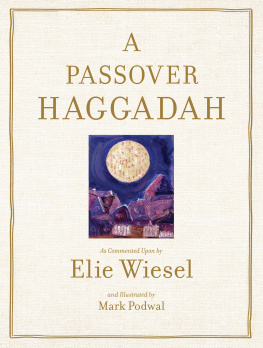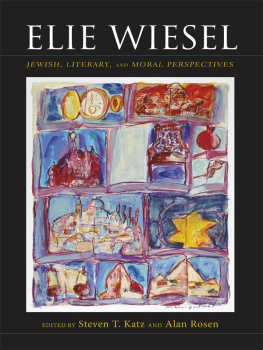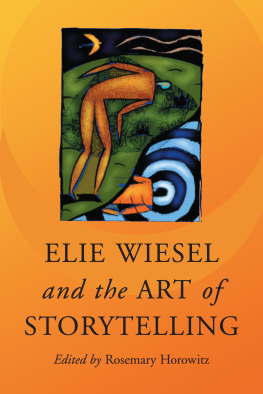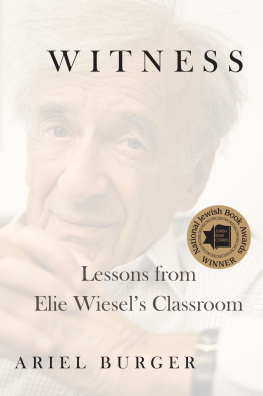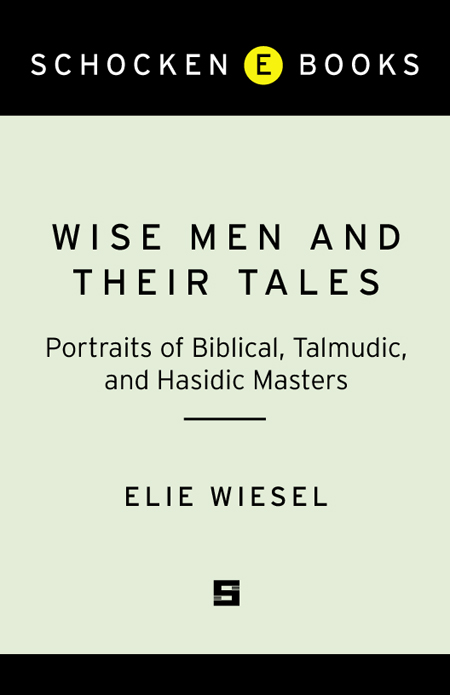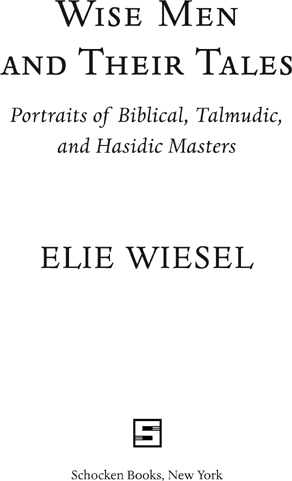Elie Wiesel - Wise Men and Their Tales: Portraits of Biblical, Talmudic, and Hasidic Masters
Here you can read online Elie Wiesel - Wise Men and Their Tales: Portraits of Biblical, Talmudic, and Hasidic Masters full text of the book (entire story) in english for free. Download pdf and epub, get meaning, cover and reviews about this ebook. year: 2009, publisher: Knopf Doubleday Publishing Group, genre: Non-fiction. Description of the work, (preface) as well as reviews are available. Best literature library LitArk.com created for fans of good reading and offers a wide selection of genres:
Romance novel
Science fiction
Adventure
Detective
Science
History
Home and family
Prose
Art
Politics
Computer
Non-fiction
Religion
Business
Children
Humor
Choose a favorite category and find really read worthwhile books. Enjoy immersion in the world of imagination, feel the emotions of the characters or learn something new for yourself, make an fascinating discovery.

- Book:Wise Men and Their Tales: Portraits of Biblical, Talmudic, and Hasidic Masters
- Author:
- Publisher:Knopf Doubleday Publishing Group
- Genre:
- Year:2009
- Rating:3 / 5
- Favourites:Add to favourites
- Your mark:
Wise Men and Their Tales: Portraits of Biblical, Talmudic, and Hasidic Masters: summary, description and annotation
We offer to read an annotation, description, summary or preface (depends on what the author of the book "Wise Men and Their Tales: Portraits of Biblical, Talmudic, and Hasidic Masters" wrote himself). If you haven't found the necessary information about the book — write in the comments, we will try to find it.
The matriarch Sarah, fiercely guarding her son, Isaac, against the negative influence of his half-brother Ishmael; Samson, the solitary hero and protector of his people, whose singular weakness brought about his tragic end; Isaiah, caught in the middle of the struggle between God and man, his messages of anger and sorrow counterbalanced by his timeless, eloquent vision of a world at peace; the saintly Rabbi Yehoshua ben Levi, who by virtue of a lifetime of good deeds was permitted to enter heaven while still alive and who tried to ensure a similar fate for all humanity by stealing the sword of the Angel of Death.
Elie Wiesel tells the stories of these and other men and women who have been sent by God to help us find the godliness within our own lives. And what interests him most about these people is their humanity, in all its glorious complexity. They get angryat God for demanding so much, and at people, for doing so little. They make mistakes. They get frustrated. But through it all one constant remainstheir love for the people they have been charged to teach and their devotion to the Supreme Being who has sent them. In these tales of battles won and lost, of exile and redemption, of despair and renewal, we learn not only by listening to what they have come to tell us, but by watching as they live lives that are both grounded in earthly reality and that soar upward to the heavens.
Elie Wiesel: author's other books
Who wrote Wise Men and Their Tales: Portraits of Biblical, Talmudic, and Hasidic Masters? Find out the surname, the name of the author of the book and a list of all author's works by series.






